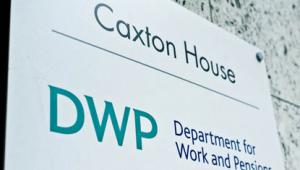Analysing the impact of the reduction, which sees the maximum amount that households can receive in benefits cut from £26,000 to £23,000 a year in London and £20,000 elsewhere, the think-tank said this would also mean those affected were more evenly spread across the country.
The new cap is predicted to affected 88,000 households, compared with only 20,000 under the previous £26,000 national cap.
Public spending on benefits was reduced by £65m last year under the old cap, a sum now expected to rise to £100m, the IFS said.
The cap applies to out-of-work households of working age, in most cases affecting those with large numbers of children and high housing benefit payments, the IFS said.
It noted: “For those families who are affected, the impact can be large. Households who are already capped will lose a further £3,000 per year in London or £6,000 per year elsewhere.
“The government expects those households newly affected by the cap to lose an average of £2,000 a year.”
Under the old system there was no special rate for London, where high housing costs led to 42% of affected households being concentrated.
That proportion is expected to fall to 22%, the IFS said. With the cap also becoming significantly more important outside the capital notably in the East Midlands.
| Region | Households affected by £26,000 cap | Households affected by lower cap |
|---|---|---|
| North East | 600 | 4,000 |
| North West | 1,400 | 9,000 |
| Yorkshire and the Humber | 1,200 | 7,000 |
| West Midlands | 1,700 | 10,000 |
| East Midlands | 800 | 5,000 |
| East | 1,400 | 8,000 |
| London | 8,400 | 19,000 |
| South East | 2,100 | 11,000 |
| South West | 900 | 5,000 |
| Wales | 600 | 4,000 |
| Scotland | 800 | 5,000 |
| Total | 20,000 | 88,000 |
Reducing the cap will affect more households with smaller numbers of children even if they do not claim very high levels of housing benefits, the IFS said.
This was because once a cap fell below the sum of local housing benefit and other nationally-set benefits there would be ‘tipping points’ that led to sudden changes in the number and type of affected households.
It said that using a capping system, rather than reforming the underlying benefit rates, led to “a risk of arbitrariness in its effects [and] it would be sensible for the government to set out a clear vision of which families it thinks receive excessive amounts of benefits and why.”
Meanwhile, the Chartered Institute of Housing predicted some 116,000 families would lose up to £115 a week from the lower cap across the social rented and private rented sectors.
Chief executive Terrie Alafat said: “The results of our research are extremely worrying. It shows that the reduction in total benefits is going to hit some of the most vulnerable families of all sizes.”
Work and pensions secretary Damian Green told the BBC Radio 4 Today Programme that the government was making it "as easy as possible" for claimants to get work, by offering free childcare offers and structuring benefits to encourage people in to employment.
He said: “I'm not saying that lone parents have to go and find a full-time job, if they want to avoid the benefit cap they only have to be working 16 hours a week and we will be providing free childcare to enable them to do that.”


















